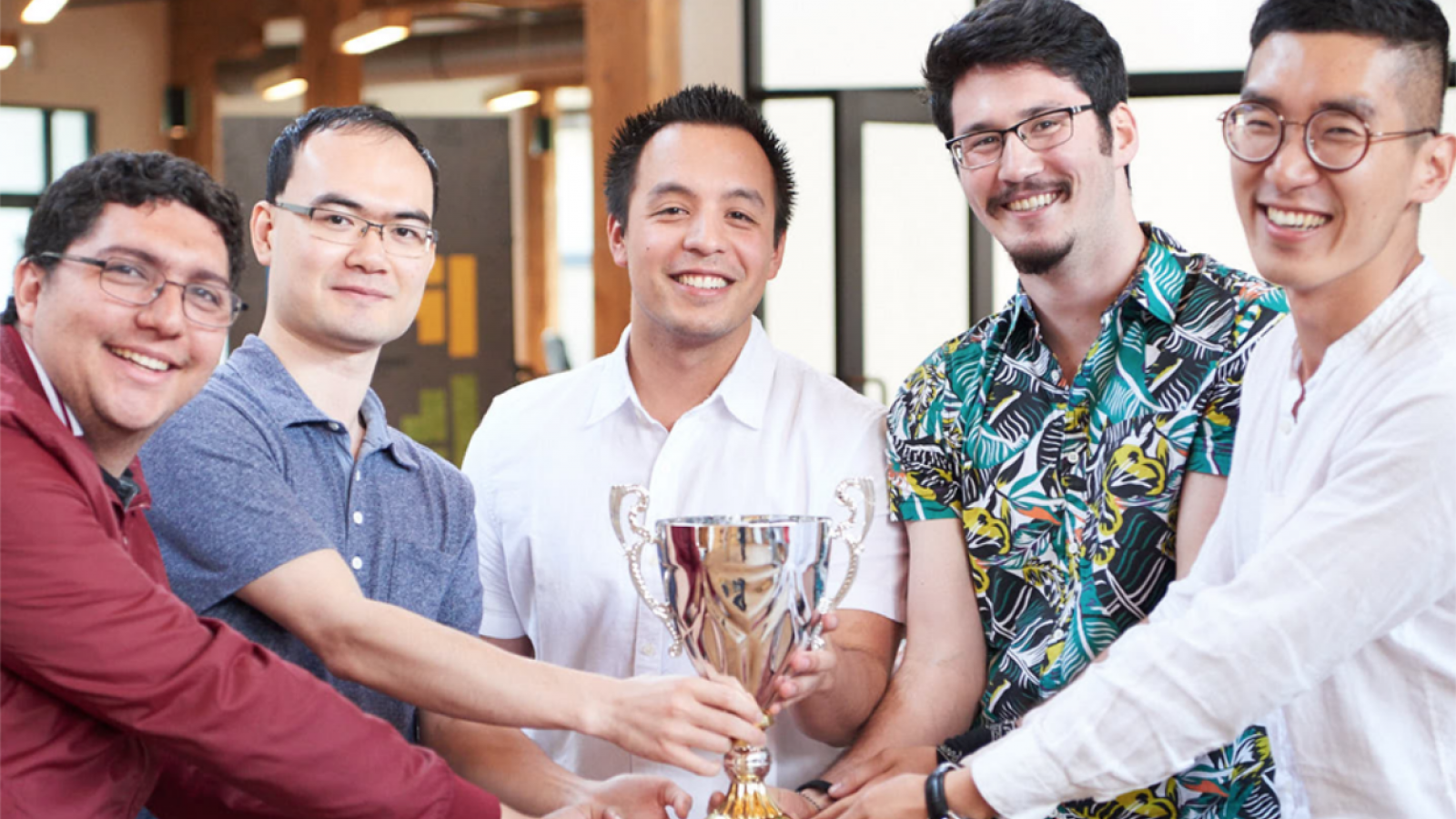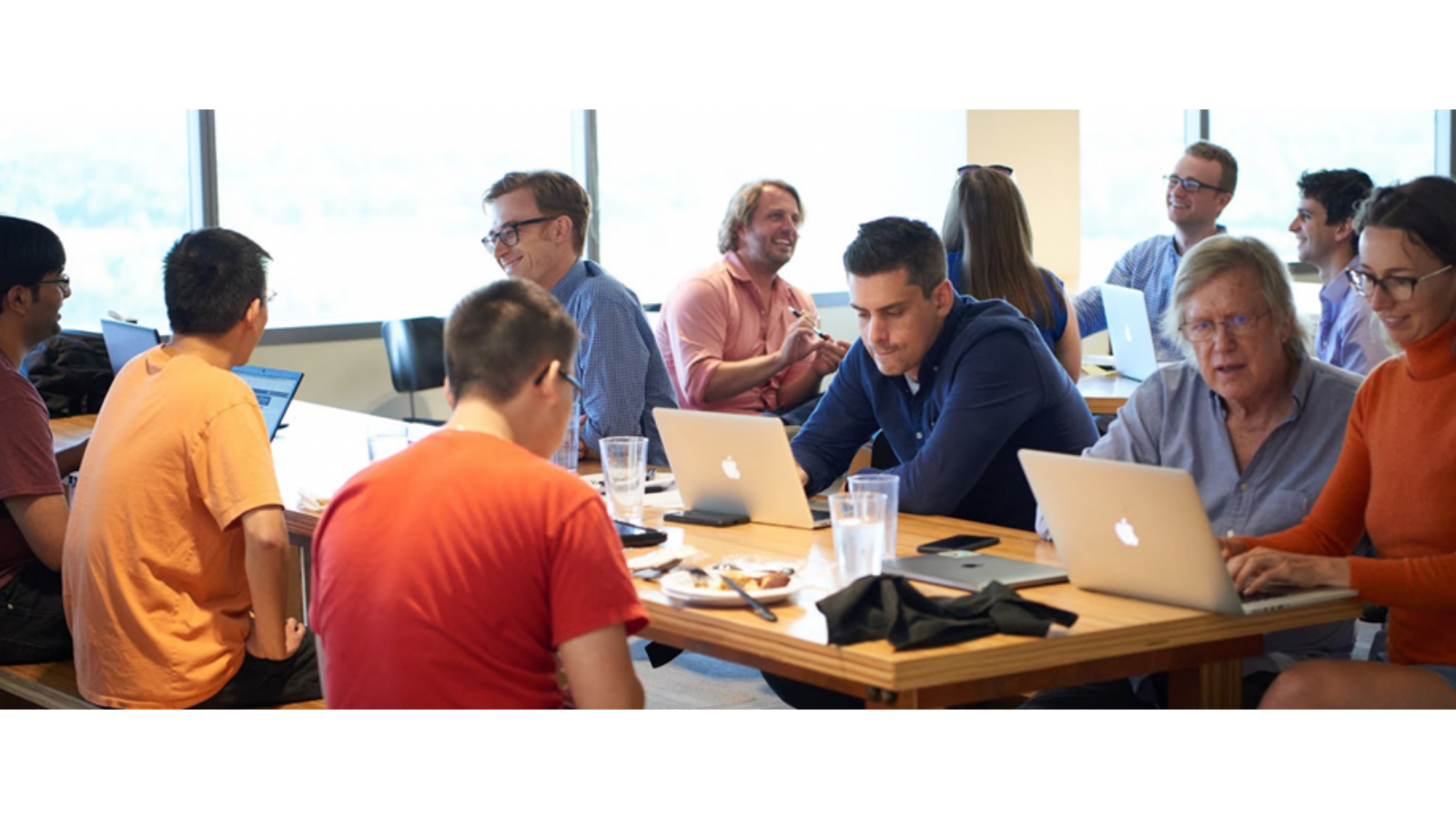
Photo from the individual project presentation day at CoverMyMeds. Courtesy of Stephen Takacs Photography.

Photo from the individual project presentation day at CoverMyMeds. Courtesy of Stephen Takacs Photography.
When you think of math professors, chances are you don’t think about corporate engagement and commercialization.
When Associate Professor Roman Holowinsky started his career at Ohio State in 2010, neither did he. Shortly after arriving, however, opportunities led him toward building academic community, translating academic community into interdisciplinary collaboration, and now, facilitating commercialization.
Like most faculty, Holowinsky moved to Columbus from outside Ohio and didn’t have any family or social support network in the city.
“There was a huge need for new faculty to bond together,” Holowinsky said. “We needed a trusted source for life information. Who are the good doctors, attorneys, realtors, mechanics, etc.?”
As new faculty from across the university congregated via the social networking service, Meetup, to answer these kinds of questions, they started talking about work and brainstorming new collaborations. Once those relationships were established and collaborations started getting funded, it was time to formalize this informal structure. Thus, the STEAM Factory was born.
“The potential and strength of our group was clear,” said Holowinsky. “We knew what we had to do.”
Since the founding of the STEAM Factory in December 2012, membership has grown to over 200 faculty and staff representing more than 100 departments and offices in the university. The diverse cross section of academics represented has turned the STEAM Factory into a collaboration destination.
“Other universities started taking notice, our university alumni started getting involved and corporations started turning to us searching for new opportunities,” Holowinsky said. “It was time to branch out and think more about what problems could be addressed through corporate and alumni engagement.”
And so The Erdős Institute was formed in January 2017, with its first program, Invitations to Industry, focusing on establishing new PhD career recruitment pipelines. With the U.S. graduating more than 40,000 PhDs in the sciences annually and only 3,000 new permanent faculty jobs being created each year, the academic job market is getting increasingly competitive.
“It’s a trend that’s personally affecting our graduate students and my colleagues,” Holowinsky said. “And we had to do something about it.”
The Invitations to Industry seminar series has grown rapidly. What started with three seminars in the Department of Mathematics in spring 2017 has now hosted over 25 PhDs from as many companies to speak to graduate students from mathematics, physics, astronomy and English at Ohio State, Vanderbilt University and Rutgers University. Speakers sourced from faculty and alumni networks talk to graduate students about career opportunities within their organizations and how they entered the private sector post-PhD. Afterward, students connect with summer internship opportunities, and companies go on to hire our PhD students full-time upon graduation.
“The Erdős Institute has been a great resource for us,” said Rob Littleton, data science manager at CoverMyMeds. “We’ve hired a couple of very talented individuals through their programming and have grown our existing employees through their highly effective boot camps.”
Now that the Erdős Institute has established strong corporate partnerships, it has moved into training graduate students in the technology skill sets desired by employers through Cőde programming boot camps. The boot camps were first piloted in May 2018 and designed to train students in Python and R — two programming languages heavily used for careers in data science and machine learning.
“We’ve had a tremendous response from our corporate partners who are looking for new talent pipelines,” Holowinsky said. “We’re definitely addressing a big market need and are eager to connect with more alumni working in industry.”
To learn more about the STEAM Factory and the Erdős Institute, please visit steamfactory.osu.edu and erdosinstitute.org.
